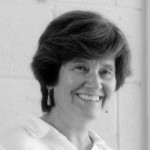Mission and Vision
Team El Salvador provides a professional, international opportunity for MIIS students to hone development skills and enhance language and multicultural competency by developing and nurturing a partnership with the Mangrove Association and la Coordinadora through ongoing projects aligned with its strategic objectives. A continued relationship between the two organizations will offer invaluable practical experience for burgeoning young development professionals and linguists, while assuring sustained benefit to La Coordinadora and its constituents through project elaboration, capacity building and cross cultural integration.
La Misión y La Visión
El Equipo Monterey proporciona una oportunidad profesional e internacional a los estudiantes del Instituto de Monterey para profundizar sus conocimientos en desarrollo sostenible y fortalecer su competencia lingüística y multicultural, creando una colaboración con La Coordinadora y Asociación Mangle por medio de proyectos que avancen sus objetivos estratégicos. Una relación que se fomente entre las dos organizaciones les ofrecerá a los profesionales y lingüistas en formación una experiencia práctica e invalorable. Al mismo tiempo, asegurará a La Coordinadora y a sus integrantes el beneficio a largo plazo que se espera resulte de los proyectos elaborados, del fortalecimiento de capacidades, y de la integración cultural.
History
Team El Salvador (formerly called “Team Monterey”) was first envisioned by MIIS student Yuniya Khan in September 2006 after she spent a summer working in the Bajo Lempa region (specifically Ciudad Romero) of El Salvador. After meeting with Ed Laurance, then Dean of the Graduate School of International Policy Studies, Yuniya and Dean Laurance agreed to developing a presence in the region. Dean Laurance connected Yuniya with MIIS alumna Adele Negro to develop the program. The first student group trip to the region was in January 2007.
Team El Salvador Leadership
The leadership model that has developed since the inception of Team El Salvador in 2006 is a key component of the program’s effectiveness. Student driven, and with oversight coordination by faculty director Adele Negro, the leadership committee assumes the principal tasks involved in assembling each year’s Team El Salvador, and it defines and designs the project focus of the team’s work with our partners on the ground. Each team leader assumes an area of responsibility within the extensive range of tasks to be carried out in preparation for every J-term practicum, e.g. informational sessions, Institute-wide communication, travel logistics, project planning, orientation and training sessions, among others.
The student leadership committee, consisting of at least three students (one or two of whom coming ideally from the previous year’s team), is selected by the outgoing leaders during the spring semester following each J-term practicum. The application process includes written submissions and in-person interviews in both English and Spanish with the faculty director and former team leaders. The commitment of time and responsibility is significant for each participant leader, spanning over more than two semesters; however, this dedication engages skills and competence both individually and collectively that serve to enhance the capacity of the team as a whole. The experience has proven very rewarding for all participants and, in many ways, mirrors the highly consultative and democratic model of community leadership developed by our partners on the ground since the founding of La Coordinadora and Asociación Mangle in response to the Peace Accords of 1992.
Adele Negro, Program Director and Language Faculty
Hometown: Brooklyn, NY; currently, Pacific Grove, CA.
Education: MA in Conference Interpretation, MIIS, 1998; Certificate of Studies, Ecole des Sciences Politiques, Paris, France, 1969; BA in French language and literature, University of Michigan, Ann Arbor, 1968; extended residence and work abroad (Argentina, Chile, El Salvador, East Africa, France)
Profession: Adjunct Faculty, GSIPM, Court and Conference Interpreter, US State Department Translator (freelance), United Nations Interpreter (freelance), Private-sector interpreter and translator (English, Spanish, French, Italian)
As faculty director of Team El Salvador (TES) since its inaugural trip in January 2007, I have oversight responsibility for team development, project formulation, practicum deliverables, and ongoing communication and relations with our Salvadoran partner organizations (La Coordinadora del Bajo Lempa and Asociacion Mangle), as well as with our US partner EcoViva. The work of successive TES teams has grown beyond the program’s original conception as an immersive experience, becoming a mature partnership and consultancy which helps to further strategic development and capacity-building goals of our partners on the ground while providing a vibrant community setting to strengthen the professional competence of participating MIIS students. Participants have frequently commented on the power of this experience to reshape, even transform, their understanding of such concepts as development, partnership, and collaboration, as well as their role as emerging professionals in that landscape. With Team El Salvador 7, over 94 students to date will have had the opportunity to engage in such a collaborative relationship. This year’s trip and project work are dedicated to the memory of Jade Anthony, much admired student participant (MPA 2007) in the first Team El Salvador, who passed away at a tragically early age in September, 2012.



